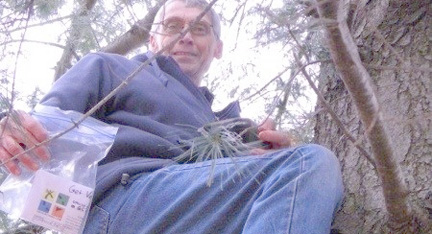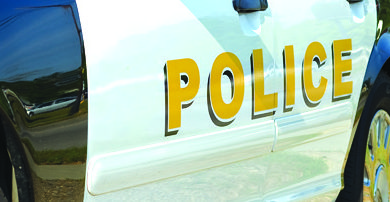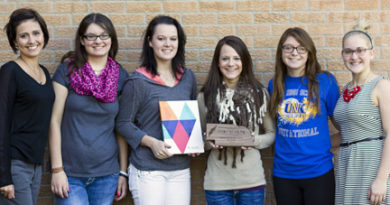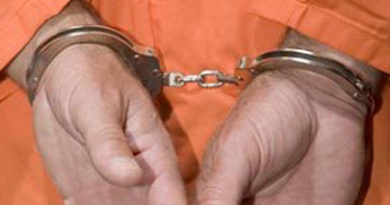Geocaching: real-world outdoor treasure hunting

A little adventure, exploring new places, keeping wired in to new technology, physical exercise – it’s all part of a booming hobby known as geocaching. Using global positioning systems, players try to locate hidden containers, record that they were “there” and share the experience online.
“It’s really a lot of fun,” says Hebron geocacher Clarence Baden. “I’ve discovered many new places, places I’ve never even heard of.”
Geocaching combines technology with outdoor adventure exploring locations near and far and, according to geocache.com, there are geocaches on every continent from Antarctica to North America. “I’ve managed to find over 1,600,” Baden says, “and I’m already planning my next one.”
Baden said geocachers locate the “treasure,” usually in the form of a small container, then remove, sign and return a scrolled log kept inside the container to record that they found the item. He also keeps track of his finds, like almost all geocachers, online. “Sometimes the caches have little souvenirs inside,” he says, “but if you take something out of one, the rules are you should replace it with something else. Often people who create geocaches will track an item inside their container to see where and how far it travels, too.”
In its simplest form, a geocache contains a logbook or logsheet for the finder to sign, says the literature from the geocache website. Caches may also contain items for trade, but, hobbyists agree, the journey in discovering a geocache is often the greatest reward.
“You’ll find them everywhere,” Baden explained. “In parks, cemeteries, underwater, city streets, golf courses, trees…anywhere.” In fact, the very first geocache was planted in a tree near Portland, Ore., back in 2000. “My wife and I were in Oregon for a wedding and so of course I had to go find that one,” he said.
According to geocaching.com, geocaching is the result of a massive improvement in GPS technology that took place in May of 2000. Twenty-four satellites around the globe processed new orders and instantly, the accuracy of GPS technology improved tenfold. Tens of thousands of GPS receivers around the world got an instant upgrade.
The next day, Dave Ullmer, a computer consultant, wanted to test the accuracy by hiding a navigational target in the woods. He called the idea the “Great American GPS Stash Hunt” and posted it in an internet GPS users’ group. The idea was simple: Hide a container out in the woods and note the coordinates with a GPS unit. The finder would then have to locate the container with only the use of a GPS receiver. On May 3, he placed his own container, a black bucket, in the woods near Beavercreek, Ore., near Portland.
Within three days, two different readers claimed to have found the stashed container and by the next week others were hiding their own containers and posting coordinates.
Baden has been a member since June 13, 2009, logging thousands of miles as he finds new caches wherever he ventures. “It’s a big part of our trips,” he says of he and his wife’s vacations and travels. “Sometimes we go somewhere just to find a geocache.”
He’s also caught the hiding bug himself and has created his own geocaches. “There’s a few in Hebron,” he said.
Over the years some geocaches have evolved from simply a tube containing a log to other more clever puzzles, Baden said.
“You might find a cache with a hint inside it suggesting you need to enter more coordinates to find the correct cache – it’s like a puzzle and it’s all part of the game.”
But most of all, he says, it’s a fun way to see places he’s never seen and meet people he never would have met if he wasn’t a geocache hunter.



